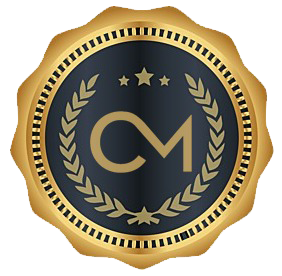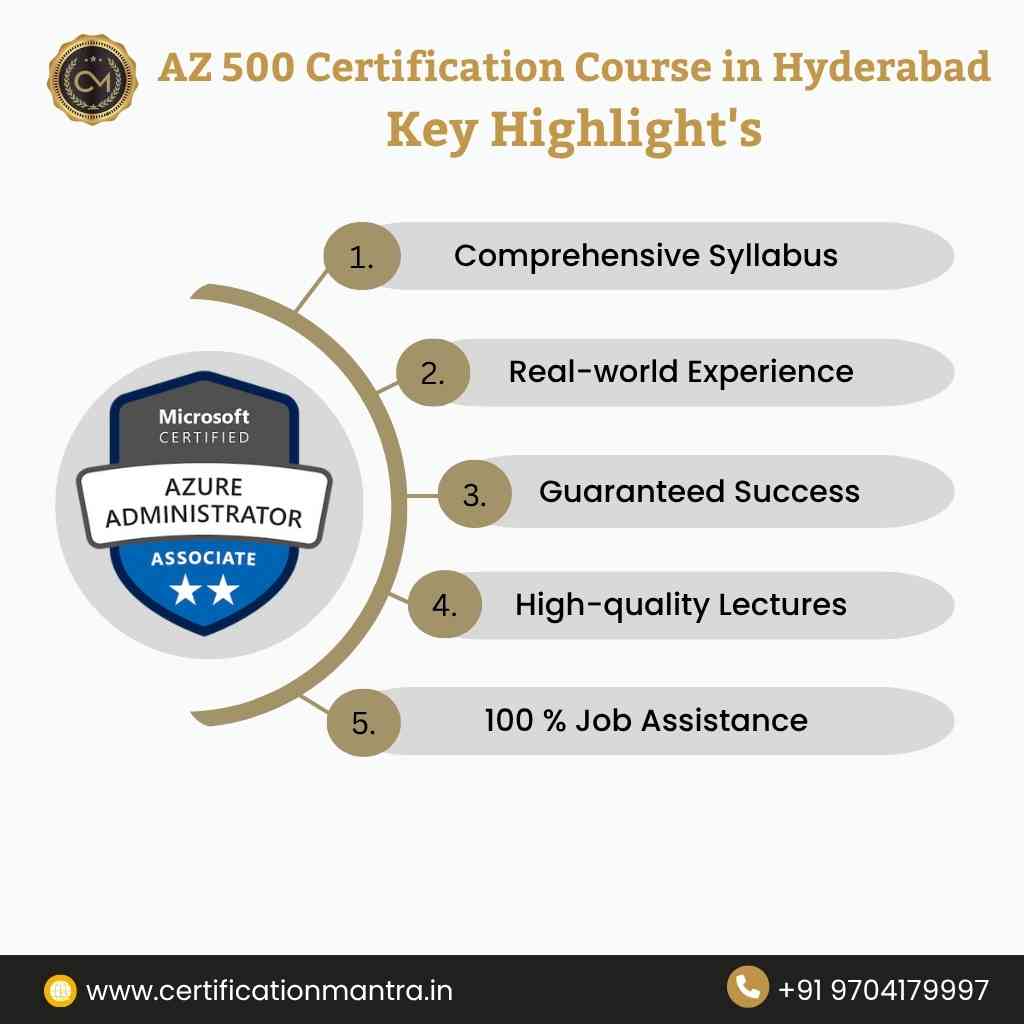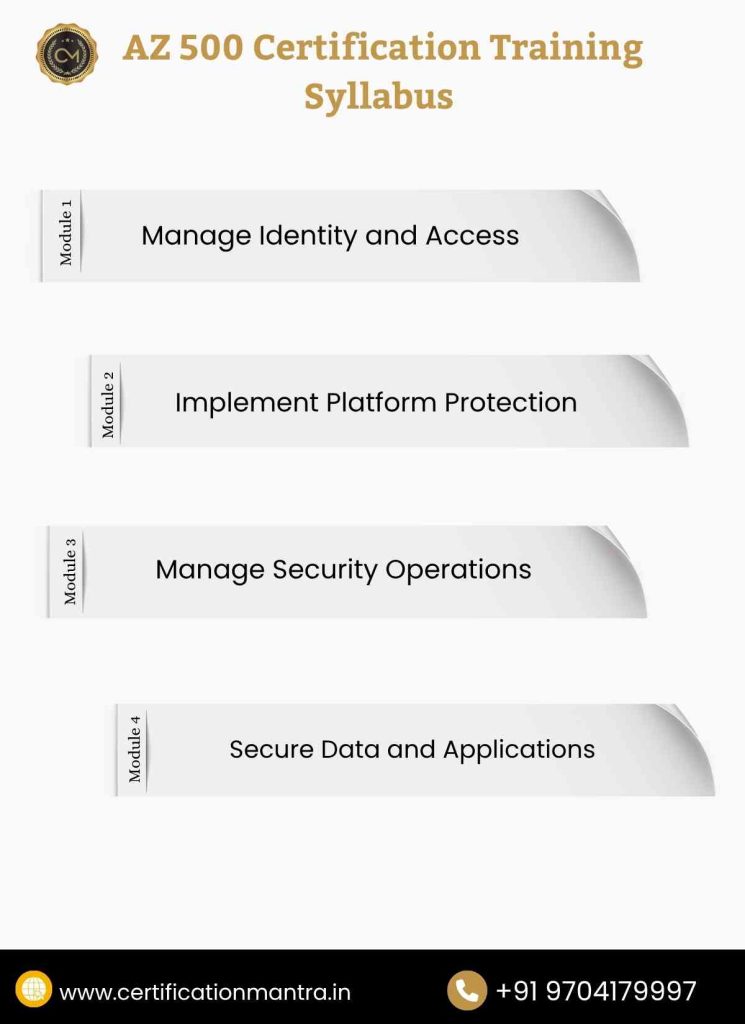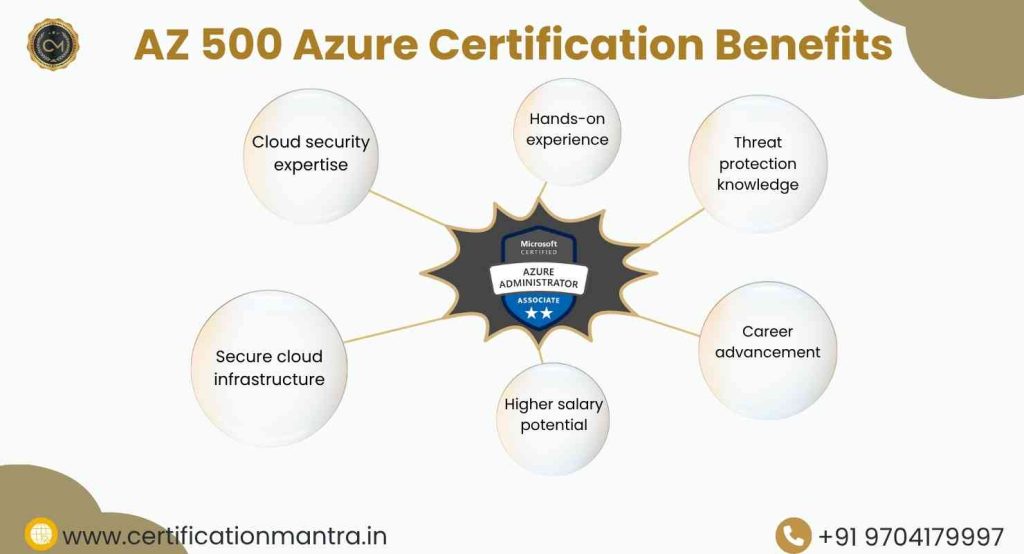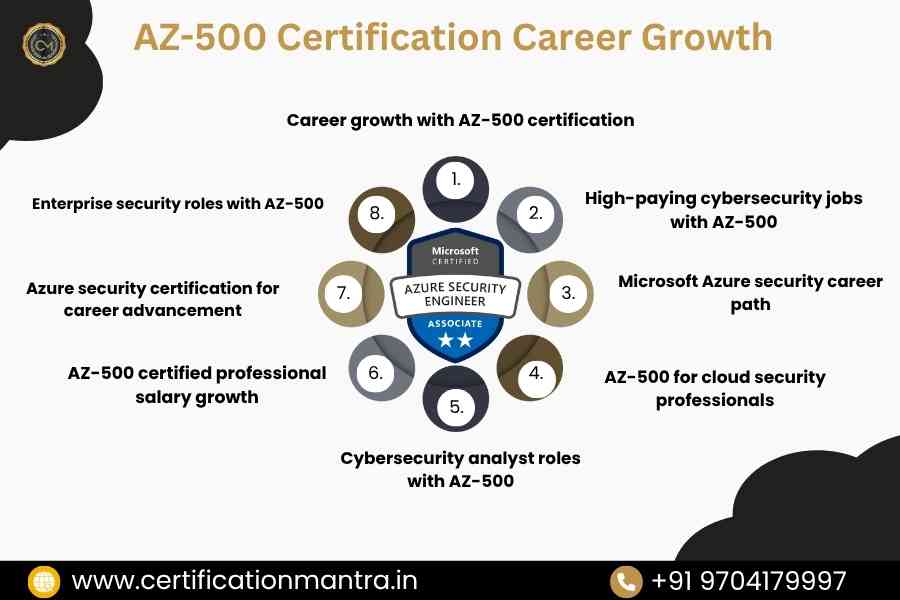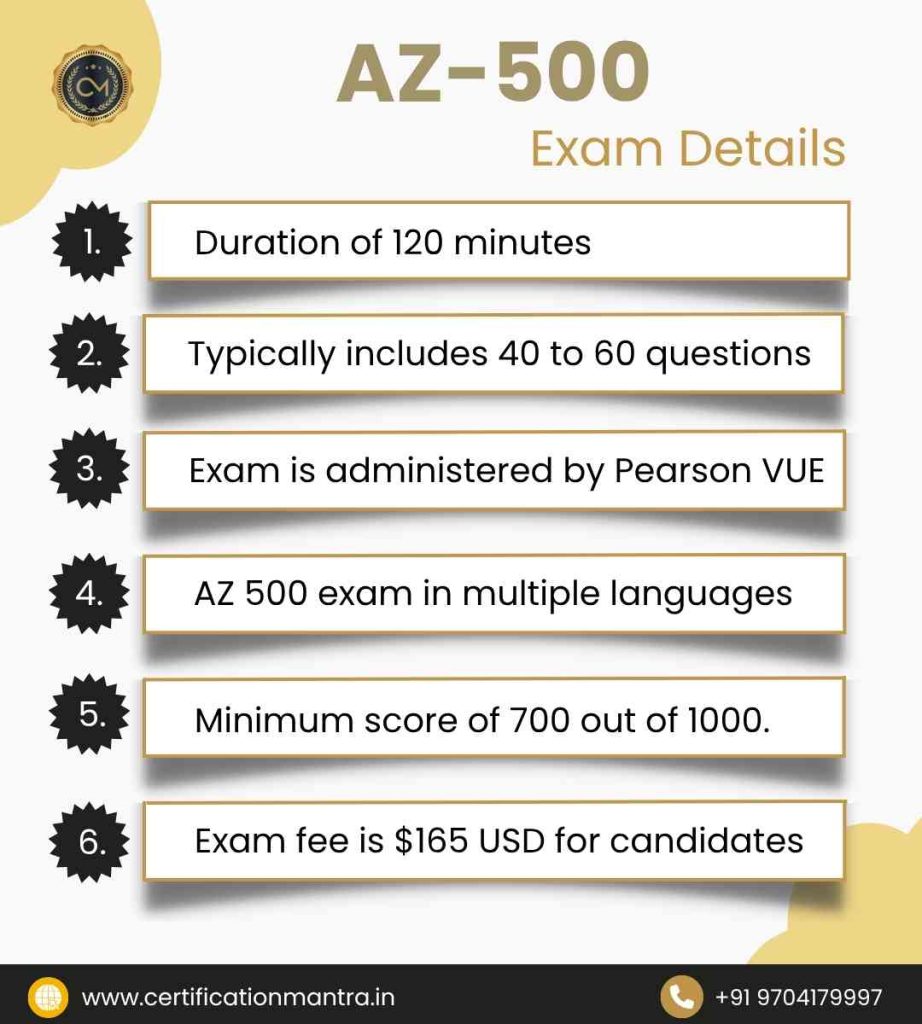Frequently Asked Questions

English, Japanese, Chinese (Simplified), Korean, German, French, Spanish, Portuguese (Brazil), Russian, Indonesian (Indonesia), Arabic (Saudi Arabia), Chinese (Traditional), Italian
Yes, the AZ-500 certification can help you land roles like Azure Security Engineer, Cloud Security Analyst, or Security Consultant. It’s widely recognized in India, the US, UK, and globally across cloud-first companies.
AZ-500 opens doors to roles such as Azure Security Engineer, Information Security Analyst, Cybersecurity Consultant, SOC Analyst, and more in enterprises using Microsoft Azure.
Professionals with AZ-500 earn an average of ₹9–15 LPA in India. Senior engineers in metros like Bangalore, Hyderabad, and Pune can earn ₹18 LPA or more.
No, AZ-500 is an intermediate-level certification. Prior knowledge of Azure services or AZ-104-level skills is recommended before attempting this exam.
No, AZ-500 does not require deep coding. However, familiarity with PowerShell, Azure CLI, and automation scripts can be helpful in some scenarios.
It validates your expertise in Azure security, boosts job opportunities, increases salary potential, and enhances credibility in the cloud security domain.
With 8–10 hours per week, most learners can prepare for AZ-500 in 4–6 weeks. Hands-on labs and Microsoft Learn modules are key for success.
Yes, Azure security is in high demand globally, especially with the rise of hybrid work and cloud-native applications across industries.
To pass the AZ-500 exam, you need a score of 700 out of 1000. The exam includes 40–60 multiple-choice and scenario-based questions.
AZ-500 is valid for 1 year and can be renewed online for free through Microsoft Learn, ensuring your certification stays current.
AZ-500 is highly valuable for security-focused roles. AZ-305 is ideal for architects, while AZ-104 is best for cloud administrators.
SC-200 focuses on security operations and threat response using Microsoft Sentinel, while AZ-500 focuses on security implementation in Azure environments.
Globally, AZ-500 certified professionals earn around $100,000–$130,000 per year. In India, salaries range from ₹8 LPA to ₹20+ LPA based on experience.
There are no official prerequisites, but experience with Azure administration, networking, and identity services is highly recommended.
With prior Azure knowledge, it takes about 1 to 2 months of consistent learning and hands-on practice to prepare effectively.
AZ-104 is foundational and great for beginners; AZ-500 is ideal for professionals looking to specialize in Azure security
Azure Solutions Architects and Cloud Security Engineers often command the highest salaries—earning upwards of $130K+ globally.
Yes, Azure job roles are in high demand across cloud, DevOps, data, and security domains—especially in India, the US, Canada, and the UK.
AZ-305 and SC-100 are considered harder due to design and strategy-level content, while AZ-500 is moderately challenging with a security focus.
AZ-900 is the easiest and best for beginners. AZ-104 is the next step, followed by specialized certs like AZ-500 or AZ-700.
AZ-104 is for administrators managing Azure resources. AZ-305 is for architects designing Azure solutions—more advanced and strategic.
AZ-500 certifies your skills in securing Azure environments—covering access controls, identity protection, threat management, and data security.
In the US, Azure Security Engineers earn $100K–$140K/year. In India, salaries range from ₹10–20 LPA depending on experience and location.
Roles include Azure Administrator, Security Engineer, Cloud Architect, DevOps Engineer, and Compliance Analyst depending on the certification.
The AZ-500 exam costs USD 165 globally. In India, pricing may vary slightly based on taxes and exchange rates.
They are responsible for managing identity, implementing security controls, monitoring threats, and securing data across Azure infrastructure.
Top cities include Bangalore, Hyderabad, Pune, and Gurgaon, offering high demand, better packages, and more Azure-based roles.
Follow the official Microsoft Learn path, join a structured training program, use hands-on labs, take practice exams, and revise thoroughly before the test.
